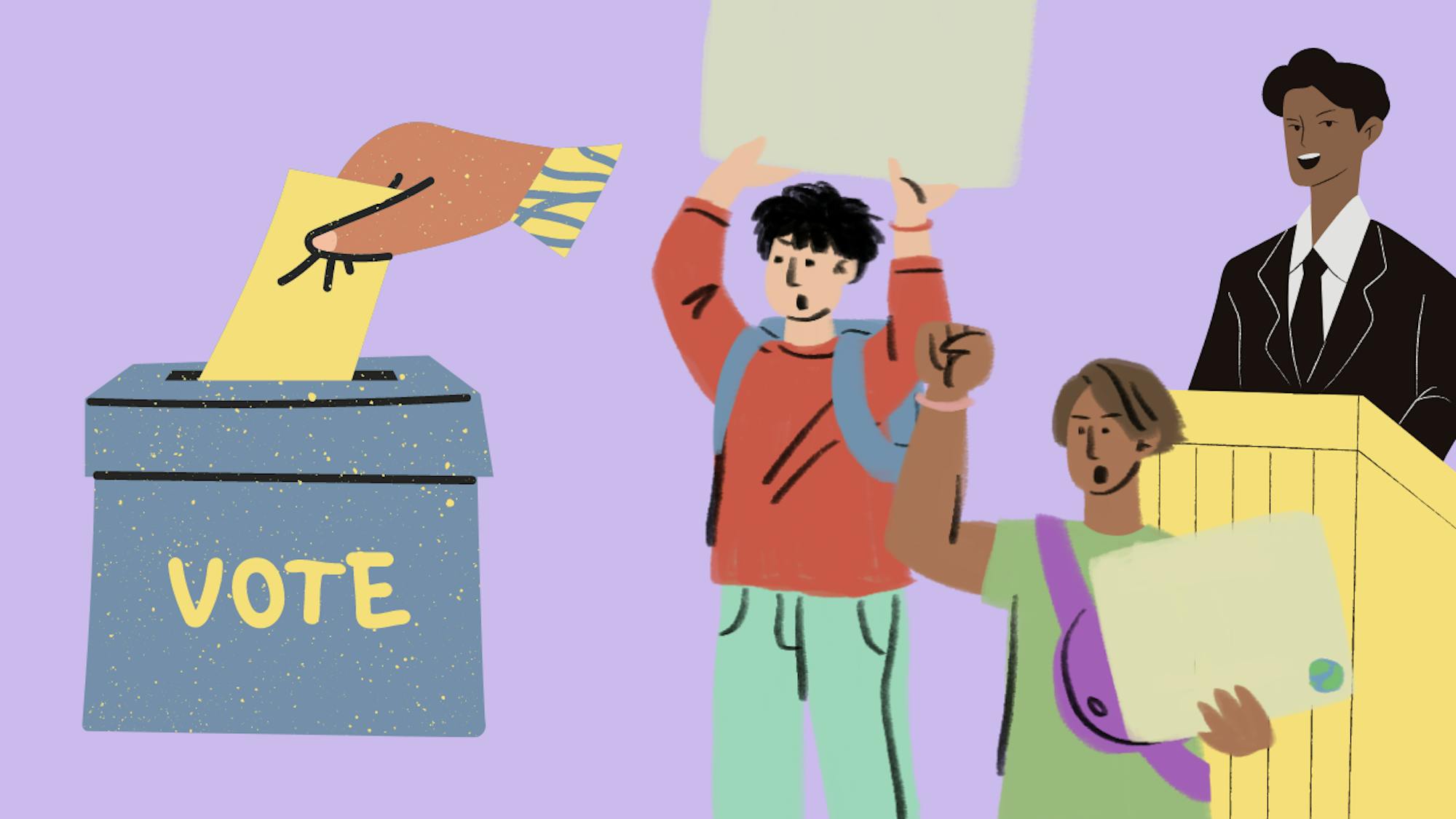The time for Generation Z to run for office is here.
In the past decade, we’ve seen the median age of politicians in Congress climb. At the same time, however, we have seen influential younger members of Congress, including Gen Z Rep. Maxwell Frost, D-Fla., and millennial Rep. Alexandria Ocasio-Cortez, D-N.Y. Overall, the House is getting younger. Young voters were instrumental in generating Democrats’ success in the 2022 midterms. In future elections, young candidates should be at the forefront.
Although many conversations about government revolve around the federal government, state and local governments exercise large swaths of control over the specific policies and decisions that directly impact people’s day-to-day lives. For example, school boards set agendas for public schools and ensure they are running as intended. Mayors and select boards are elected to manage the operation of cities and towns and make decisions about their day-to-day functioning. City councils and town meetings manage legislation and govern a city or town, creating long-term plans, policies and regulations.
The shadow of politics impacts everyone and everything in American society. Book bans are one example of a contentious topic in recent years that is often subject to the decisions of school boards or state legislation. But it’s not just books. Our generation will be impacted in ways other generations haven’t been because of climate change, housing, gun violence and other issues uniquely impacting the youth of the United States. Therefore, Gen Z needs to find its seat at every table. To make that happen, we all need to be involved. Every member of Gen Z needs to vote, and if you want to run, run.
Millennials make up over a quarter of the population eligible to vote, but only 7% of members of Congress, according to the Center for Information & Research on Civic Learning and Engagement at Tufts. Young women make up only 30% of candidates and are much less likely to express interest in running for office.
Locally, many Gen Z candidates are running for office and winning their elections. In 2021, Justin Tseng, 21 years old at the time, was elected to the Medford City Council. In 2023, then 18-year-old Emerson College student Angus Abercrombie was elected to the Belmont Town Meeting and is now running for School Committee. 19-year-old Omar Mohuddin ran for mayor of Woburn and 20-year-old Emerson student Albert “Trey” Fuccillo ran for city council in Marlborough — and these are only a few of the young people running for local office.
You could be among those people. Gen Z must upend the idea that every politician has a law degree; people in politics must come from every background for our government to be truly representative.
Younger candidates have numerous resources for their campaigns. In a digital age, raising money is simpler than ever and data about voters is available digitally. There’s support from organizations like Run for Something and David Hogg’s “Leaders We Deserve.” Finding where you can run is easy, using online resources like wherecanirun.org.
On that note, I’m running for office.
On March 5, I’ll be on the ballot for a Town Meeting member — a nearly 200-member legislative body that meets several times each year to vote on and discuss “warrant articles” — in Lexington, Mass. The Town Meeting is a uniquely New England form of government intended to represent the local community by embodying the ideas of direct representation. However, it can only be representative of the local community if the members that make up the body are.
I’m running to represent the interests of Gen Z’s present and future; I hope you will too. Run for office, for something — anything. Your voice is valuable. Find a seat at the table. It’s Gen Z’s turn to join the ‘American experiment’ in its 248th year. The experiment only works if every American is represented.






